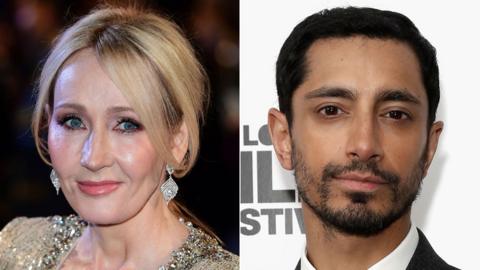
Their voices came together to create this book, the US edition of The Good Immigrant, in which twenty-six writers reflect on America as they have known it. We thought it was vital that each of them have an opportunity to express their experiences, as varied and as nuanced and as messy and as precarious as the immigrant experience is all over the world. So we decided to talk to some of our favorite writers, actors, comedians, directors, and artists based in America, all with experiences of being first- or second-generation immigrants. By then, Chimene, who was a contributor to the original book, was living in the States and having frequent conversations with writers and artists about the precariousness of being a person from an immigrant background here, in this country of immigrants. Meanwhile, we looked across the Atlantic and watched a similar resurgence of far-right and white-supremacist rhetoric overtake the United States. And a comfort for people of color in the UK wanting to see themselves reflected somewhere, anywhere, in the culture. The book inadvertently became a political tool. What we didn't know at the time was that Brexit was just around the corner, that the immigration debate was about to become truly toxic, and that the far right would use this as their moment to retake center stage in our domestic political conversations.

We wanted to humanize immigrants, let them tell their own stories and finally be in charge of their own narrative. Only when they win an Olympic medal, treat you at your local hospital, or rescue a child from the side of a building do they become good. They are job stealers, benefit scroungers, girlfriend thieves, and criminals. The title was a response to the narrative that immigrants are "bad" by default until they prove themselves otherwise. Here are some of them, all together in one book, doing what they do best. When we talked about the need for better representation in UK publishing, people would ask, "But where are the writers?" Nikesh's answer to that (patronizing, incurious) question was The Good Immigrant. When we conceived of the project, it was about trying to diversify publishing.

Each piece was bright and rich and necessary. Journalist Bim Adewunmi broke down what we mean when we talk about "tokenism." Actor and playwright Daniel York Loh spoke sadly of discovering that his only East Asian hero, a masked wrestler called Kendo Nagasaki, was actually a white guy.

Actor Riz Ahmed talked about performing as a brown Muslim man, not only in auditions but every time he goes through airport security. In 2016 we put out The Good Immigrant, a collection of essays by twenty-one British writers of color who spoke about race and immigration.


 0 kommentar(er)
0 kommentar(er)
